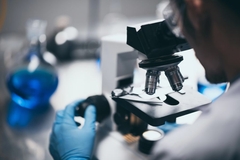
- Industry news
Industry news
- Category news
Category news
- Reports
- Key trends
- Multimedia
- Journal
- Events
- Suppliers
- Home
- Industry news
Industry news
- Category news
Category news
- Reports
- Key trends
- Multimedia
- Events
- Suppliers
NIZO and University of Twente partner on lab device to test how food affects brain health
Key takeaways
- NIZO and the University of Twente partner to commercialize Gut-Brain Axis on Chip technology, demonstrating how dietary components affect brain function.
- The organ-on-chip system uses human stem cells to replicate gut-brain connections, enabling monitoring of cognition, memory, and neural development.
- Technology will be showcased at Fi Europe 2025 and is nominated as a finalist in the Health Innovation Award 2025.

Dutch food research organization NIZO and the University of Twente have announced a strategic partnership to commercialize the Gut-Brain Axis on Chip, a laboratory device that mimics how the human gut and brain communicate. The technology allows researchers to test how specific food ingredients affect brain function without using animals or human subjects.
The device grows miniature versions of human intestinal and brain tissue from stem cells inside a microfluidic chip, replicating the biological pathways that connect the gut to the brain. This includes the vagus nerve connection that allows the gut to send signals to the brain in response to food.
“The Gut-Brain Axis on Chip marks a turning point in how we understand the relationship between nutrition and brain health,” says Nikolaas Vles, CEO of NIZO. “For the first time, we can physically observe how food-derived components influence cognitive development and aging.”
From philosophy to laboratory science
Research increasingly shows that nutrition influences brain health across the lifespan, from infant brain development to cognitive aging in older adults. Much of this influence is mediated through the gut microbiota, which interacts with food components and communicates with the brain via biochemical and neurological pathways.
However, the precise mechanisms behind how diet affects brain function have remained largely unclear. Foods undergo extensive changes as they move through the digestive system, from interactions with the microbion modified by processing conditions, the food matrix, or their composition, to absorption into the bloodstream.
By the time nutrients reach the brain, they are often modified by processing conditions, the food matrix, or their composition.
The Gut-Brain Axis on Chip addresses this gap by enabling researchers to map the route of food ingredients from the mouth to the brain, monitoring critical brain processes including myelination, neurogenesis, and synaptic pruning as measures of cognition and learning.
Technology and applications
Custom-designed microfluidic chips precisely control the tissues’ microenvironment, enabling direct assessment of how nutrients and food ingredients influence brain function. Techniques such as mRNA profiling and protein analysis provide measurable evidence of dietary impacts on cognition, memory, and neural development.
NIZO integrates the University of Twente technology with its in vitro platforms to create a pipeline that mimics the journey of food and pharmaceutical components from the gut to the brain. By combining NIZO’s advanced analytics, upper gastrointestinal tract models, and microbiome expertise with the chip’s read-outs, this integrated approach enables precise assessment of nutrient- and gut-derived compounds on brain function.
Early validation studies have demonstrated the model’s ability to detect brain-related effects from nutritional ingredients, confirming that the system is sensitive enough to capture meaningful biological responses. This offers companies an early, reliable way to identify promising ingredients before committing to human or animal studies.
“Being able to map the route of food to the brain represents five years of exceptional teamwork between our scientists and NIZO’s experts,” says Dr. Kerensa Broersen, professor at the University of Twente and senior scientist of health and digestion at NIZO.
“Together, we have built a scientifically rigorous, animal-free platform that makes the gut–brain connection measurable and actionable.”
The technology unlocks opportunities for breakthroughs in functional foods, nutritional therapies, and pharmaceuticals by enabling targeted modulation of cognition, brain aging, and early-life brain development.
NIZO will showcase the Gut-Brain Axis on Chip at Fi Europe 2025 in Paris next week. The technology has been nominated as a finalist in the Health Innovation Award 2025, with the finals taking place on December 2.


















